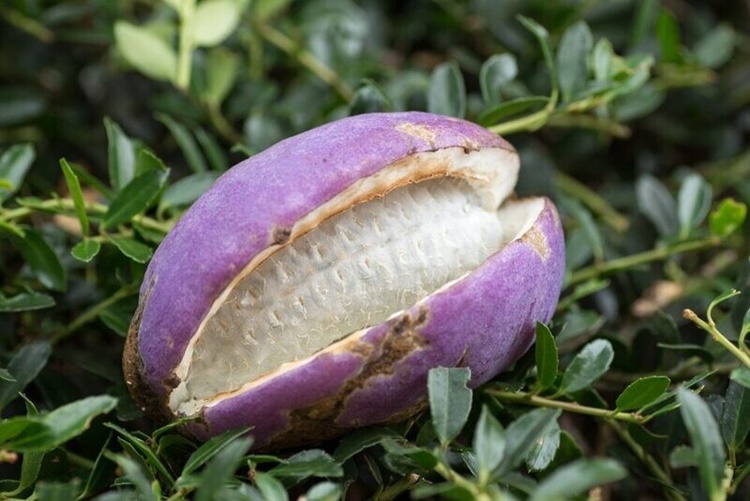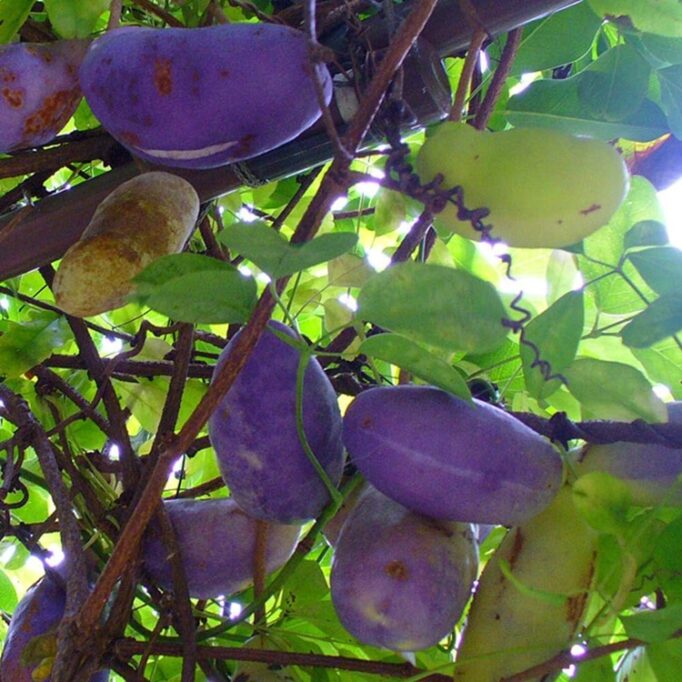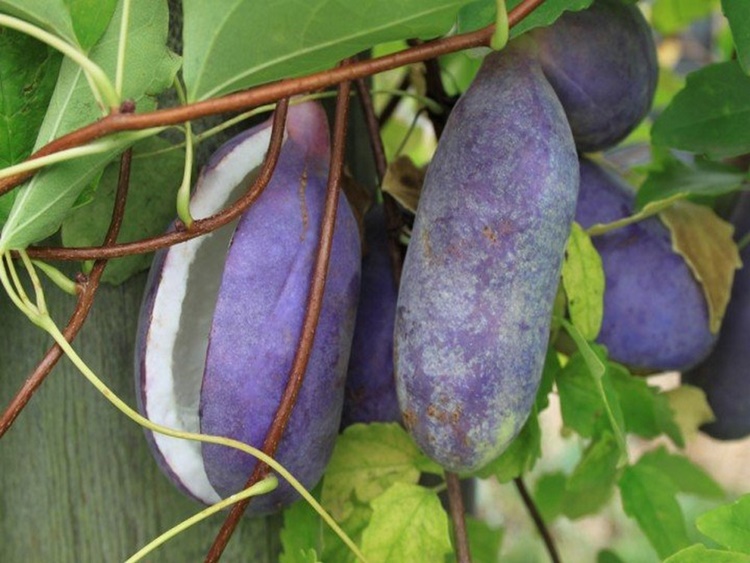Have You Tried the Purple Akebi Fruit? Here Are Its Facts…
PURPLE AKEBI – Here are some facts about this rare purple-colored fruit that many people don’t know they actually exist.
There are countless fruits in the world. Undeniably, while many of these fruits are known to a lot of individuals, there are still those that are not prominent as they only grow in limited areas in the world. Knowing these fruits can be a whole new adventure of learning.

One of the not-so-popular or a not-really-popular fruit is the Purple Akebi. As its name suggests, it is a purple-colored fruit with a shape ranging from cylindrical to oblong. Its average length is between 10 to 13 centimeters and it hangs from trailing vines.
Actually, there are several varieties of the Akebi fruit and they differ in terms of appearance and size but they have same skin texture — semi-firm, spongy, and thick. The fruit may ripen from green to purple-grey, violet, or grey.

The Purple Akebi has a soft, gelatinous center with many black-brown seeds. The seeds of this fruit are edible and they can be found suspended throughout the flesh. With regards to its flavor, this rare fruit comes with a sweet, mild, and a bit bitter flavor.
This rare fruit is usually available only during fall. It was first discovered in Japan and it still grows in the mountains of Japan as to date. It is called as the “Princess of the Mountain” because of its unique flavor and the flowers of its tree. Many people love eating Akebis as snacks. However, it is not recognized commercially because of its bland flavor.

The Purple Akebi is mainly cultivated in the Yamagata prefecture. Today, it is available in Japan, China, and Korea markers and groceries. Meanwhile, there is a small-scale of this fruit that can be found in New Zealand, Europe, and in the United States.
The Purple Akebi belongs to the Lardizabalaceae family and is classified botanically as Akebia quinata. The fruit is an excellent source of Vitamin C, an antioxidant that protects the body and contains a combination of Vitamin B6 and zinc that helps boost the immune system. This rare fruit is also an excellent source of the following:
- Calcium
- Potassium
- Vitamin C
Aside from its vitamins, the stems and fruits of the plants are used as diuretic in traditional Chinese medicine.
